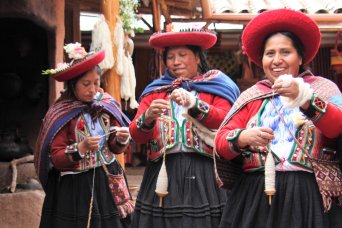- About
- Topics
- Picks
- Audio
- Story
- In-Depth
- Opinion
- News
- Donate
- Signup for our newsletterOur Editors' Best Picks.Send
Read, Debate: Engage.
| topic: | Human Rights |
|---|---|
| located: | Brazil, Colombia, Mexico, Cuba, Chile |
| editor: | Ellen Nemitz |
In its latest report released in January 2023, Human Rights Watch (HRW) calls on the governments of Latin America to "address chronic human rights concerns" such as "poverty, inequality, corruption, insecurity, and environmental degradation." Globally, the organisation scrutinised over 100 nations, providing an overview of a dozen concerning issues from the course of 2022; the overall scenario points to the failure of Latin American leaders in overcoming major challenges to become nations that guarantee respect for human rights and the environment. Peering into the report, however, progress in five pillars of human liberties provide a reason to be hopeful.
For example, human rights defenders can applaud the so-called “green wave,” referring to the expansion of legal abortion and protection of women’s bodily autonomy, which began in Argentina and spread to Colombia, where the termination of pregnancy under any circumstances was legalised in February. In Mexico, at least 11 states also passed more progressive legislation regarding abortion, the report shows.
The reparation of crimes committed during past military dictatorships has also advanced: in Argentina, for instance, the organisation Abuelas de Plaza de Mayo, in which grandmothers dedicate their lives to find lost children removed from their biological families in the 1970's and 80's, closed their 132nd case in December, bringing "more truth" to 2022. Bolivia and Chile, as well, have been implementing efforts to repair damages and bring trials regarding authoritarian-era abuses to a close.
Moreover, the Brazilian Supreme Justice Court has guaranteed trans women a significant progress by ruling, in April 2022, that they are also eligible for protection under Maria da Penha Law, a ruling that forged an internationally recognised net for women's safety - although this achievement is not listed by the Human Rights Watch report, it is also worth mentioning.
People identifying as LGBTQ+ have also reasons to celebrate in other nations. In Chile, the recent ruling allowing same-sex marriages and adoption came into effect in March; in September, Cuba opened the path for couples to get married and raise families, regardless their genders, by its new Family Code - which also strengthened women’s and girls’ rights, the report points out. The Chilean organisation Fundación Iguales also highlighted the first non-binary ID to be granted to a citizen. HRW also calls attention to a wave of states legalising same-sex marriage in Mexico, as well as allowing trans people to change their legal names.
Despite some major setbacks in terms of human rights, especially during the recently finished Bolsonaro administration, Brazil maintained its Venezuelan-friendly policy, granting refugee status for almost 3,000 migrants between January and August 2022; meanwhile, Ecuador did the same for nearly 2,000 Venezuelans as of July.
This very brief summary of some advances registered in Latin America over the past year may represent just a small percentage of the human rights panorama. Notwithstanding, quoting the European Media and Editorial Director at Human Rights Watch, Andrew Stroehlein, "We are here to help change the world for the better." For that purpose, there’s nothing better than adjusting the lens to focus on past and future solutions, providing a little dose of inspiration for 2023.
Photo by Deb Dowd

